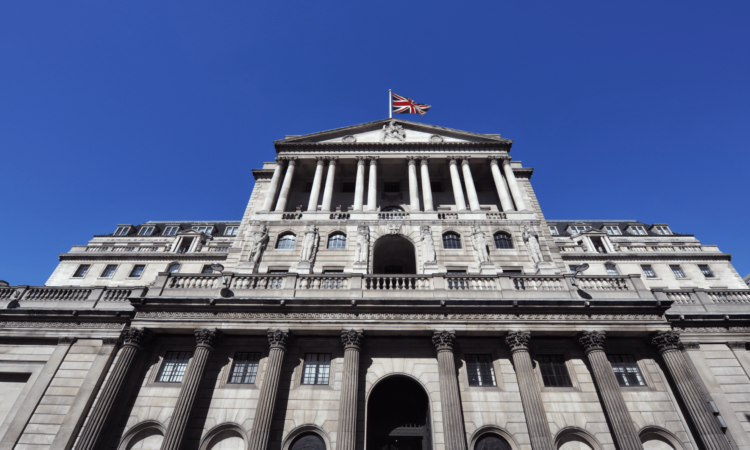
The Bank of England faces the peril of exacerbating the UK’s recession unless it promptly reduces interest rates to alleviate the strain on households grappling with the relentless cost of living crisis.
Alert on Economic Peril Amidst Bank of England’s Interest Rate Policy Decisions
Former proponent of raising interest rates at the central bank, Andy Haldane, cautioned that the Bank of England‘s insistence on maintaining borrowing rates at their highest level in over a decade could lead to dire consequences for the economy.
Official figures released last Thursday revealed that Britain’s economy slipped into recession by the end of 2023, as financially strained consumers curtailed their spending in response to soaring interest rates and mounting living expenses.
The UK’s GDP witnessed a significant decline of 0.3% in the three months leading up to December, following a previous downturn of 0.1% in the third quarter. Economists assert that two consecutive quarters of GDP contraction define a recession.
Responding to inquiries regarding the potential exacerbation of the recession unless the Bank implements interest rate cuts promptly, Haldane stated in an interview with Bloomberg’s UK Politics podcast:“That’s where the balance of risks lies, yes.
“For me the case for putting in place some upfront, early insurance on the monetary policy side is strong and strengthening, and I’m fearful we leave that insurance a little too late in the year.”
Market Expectations and Inflationary Concerns
Financial markets anticipate rate reductions from the Bank starting this summer from the current 5.25% level, with an initial decrease in borrowing rates projected for June. Investors assess a 17% probability of a cut in May, while the likelihood of a cut in June stands at nearly 50%.
Despite inflation maintaining stability at 4% in January, contrary to expectations of a slight increase, concerns persist. This stability was attributed to the first monthly decline in food prices in two years, offsetting rising energy expenses. In October 2022, inflation peaked at 11.1%, marking a 41-year-high.
However, the Bank’s policymakers warn that the UK remains vulnerable to inflationary pressures stemming from a tight labour market and escalating prices in the services sector. Andrew Bailey, the Bank’s governor, along with three other members of its rate-setting monetary policy committee, are expected to testify before the Commons Treasury committee on Tuesday.
Perspectives on Interest Rates and Economic Stability
Criticism has been directed at Threadneedle Street for delaying the commencement of its interest rate hiking cycle until December 2021, when borrowing costs were set at a historic low of 0.1%. Haldane was among the critics at that time, advocating for higher rates to address surging inflation.
However, the Bank’s former chief economist, now serving as the chief executive of the Royal Society of Arts think tank, has indicated that he would have supported interest rate reductions starting from the end of last year. Andy Haldane’s advocacy for rate reductions stems from a nuanced understanding of the economic landscape, where waning inflationary pressures and the burdensome impact of elevated borrowing costs on economic activity are clear concerns.
By supporting interest rate reductions earlier, Haldane proposes a proactive approach to mitigate potential economic downturns and alleviate the strain on households grappling with financial challenges.
This stance underscores the importance of timely and adaptive monetary policy measures to navigate through turbulent economic conditions effectively. Haldane’s perspective adds depth to the ongoing discourse surrounding monetary policy and highlights the complexities involved in steering the economy towards stability and growth.
“It’s one thing to have missed inflation on the way up, which happened, it’s quite another to then have crushed the economy on the way down,” Haldane said. “That double blow to credibility is one if I were a central banker, in my old job, I would be looking to avoid.”






